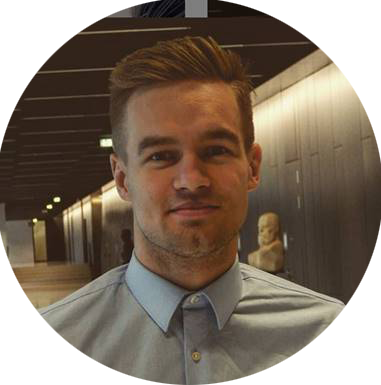
Dr. Felix Krieglstein
-
Phone:+49 371 531-39108
-
Email:
-
Room:Straße der Nationen 12, RAWEMA-Haus, 246
Research interests
- Learning with concept maps
- Design of whiteboard animations
- Subjective measurements of cognitive load
- Questionnaire construction
- Segmentations in dynamic learning media
| 04/2023 | Promotion to Dr. phil. at TU Chemnitz Doctoral subject: Media and Instructional Psychology Title: Measuring Cognitive Load – Opportunities and Challenges |
| since 04/2021 | Research Associate at the Chair Psychology of learning with digital media |
| 2018 - 2021 | Student / Research Assistant at the Chair of Psychology of learning with digital media |
| 02/2021 | Master of Science in Media and Instructional Psychology at TU Chemnitz Master thesis: How the complexity and design of concept maps influence learning processes |
| 11/2019 | Bachelor of Arts in Media Communication at TU Chemnitz Bachelor thesis: Investigation of media trust by means of a content analysis |
- Krieglstein, F. (2023). Implementing metacognitive prompts in segmented dynamic visualizations - Beneficial for learning? [Paper presentation]. 20th Biennial EARLI Conference. Thessaloniki, Greece.
- Krieglstein, F., Beege, M., Rey, G. D., Sanchez-Stockhammer, C., & Schneider, S. (2023). Developing and validating a theory-based cognitive load questionnaire [Paper presentation]. 15th International Cognitive Load Theory Conference. Montpellier, France.
- Krieglstein, F., Schneider, S., Beege, M., & Rey, G. D. (2022). Using multimedia design to foster cognitive processes when learning with concept maps [Paper presentation as part of the self-organized symposia: Current findings on learning with multimedia]. 17th Conference of the Swiss Psychological Society. Zurich, Switzerland.
- Krieglstein, F., Beege, M., Rey, G. D., Ginns, P., Krell, M., & Schneider, S. (2022). A reliability meta-analysis of frequently used subjective cognitive load scales in multimedia learning [Paper presentation]. 52nd Congress of the German Psychological Society. Hildesheim, Germany.
- Schneider, S., Beege, M., Krieglstein, F., Rey, G. D. (2021). How navigation and interactivity impacts cognitive load, learning and efficiency. Poster presentation at the International Conference on Cognitive Load Theory. (ICLT2021). Kingston.
- Krieglstein, F., Schneider, S., Beege, M., & Rey, G. D. (2021). The influence of concept map design on extraneous cognitive load, disorientation, and learning outcomes [Paper presentation]. International Cognitive Load Theory Conference (ICLTC2021). Kingston, Canada.
- Schneider, S., Krieglstein, F., Beege, M., & Rey, G. D. (2023). Successful learning with whiteboard animations – a question of their procedural character or narrative embedding? Heliyon, 9(2), Article e13229.
- Krieglstein, F., Beege, M., Rey, G. D., Sanchez-Stockhammer, C., & Schneider, S. (2023). Development and validation of a theory-based questionnaire to measure different types of cognitive load. Educational Psychology Review, 35, Article 9.
- Krieglstein, F., Schneider, S., Gröninger, J., Beege, M., Nebel, S., Wesenberg, L., Suren, M., & Rey, G. D. (2023). Exploring the effects of content-related segmentations and metacognitive prompts on learning with whiteboard animations. Computers & Education, 194, Article 104702.
- Krieglstein, F., Meusel, F., Rothenstein, E., Scheller, N., Wesenberg, L., & Rey, G. D. (2023). How to insert visual information into a whiteboard animation with a human hand? Effects of different insertion styles on learning. Smart Learning Environments, 10, Article 39.
- Schneider, S., Krieglstein, F., Beege, M., & Rey, G. D. (2022). The impact of video lecturers’ nonverbal communication on learning–An experiment on gestures and facial expressions of pedagogical agents. Computers & Education, 176, 104350.
- Beege, M., Krieglstein, F., & Arnold, C. (2022). How instructors influence learning with instructional videos - The importance of professional appearance and communication. Computers & Education, 185, 104531.
- Krieglstein, F., Schneider, S., Beege, M., & Rey, G. D. (2022). How the design and complexity of concept maps influence cognitive learning processes. Educational Technology Research and Development, 70, 99-118.
- Krieglstein, F., Beege, M., Rey, G. D., Ginns, P., Krell, M., & Schneider, S. (2022). A systematic meta-analysis of the reliability and validity of subjective cognitive load questionnaires in experimental multimedia learning. Educational Psychology Review, 34, 2485–2541.
- Wesenberg, L., Krieglstein, F., Jansen, S., Rey, G. D., Beege, M., & Schneider, S. (2022). The influence of the order and congruency of correct and erroneous worked examples on learning and (meta-)cognitive load. Frontiers in Psychology, 13:1032003.
- Schneider, S., Krieglstein, F., Beege, M., & Rey, G. D. (2021). How organization highlighting through signaling, spatial contiguity and segmenting can influence learning with concept maps. Computers and Education Open, 2, 100040.
- Beege, M., Krieglstein, F., Schneider, S., Nebel, S., & Rey, G. D. (2021). Is there a (dis-) fluency effect in learning with handwritten instructional texts? Evidence from three studies. Frontiers in Education, 6, 678798.
- Educational Psychology Review (EDPR)
- Heliyon (Cell Press)
- Journal of Veterinary Medical Education (JVME)
- Education and Information Technologies (EAIT)
- Learning and Instruction (JLI)
- Instructional Science (TRUC)
- Computers & Education (COMPEDU)
- Social Psychology of Education
- Education Sciences
- Advisory member in editorial board - British Journal of Educational Psychology
Zurück zur Übersicht
